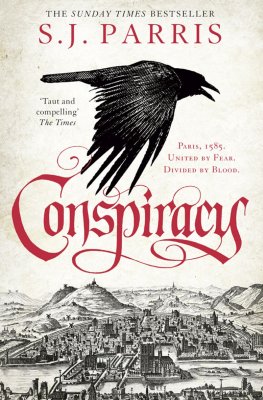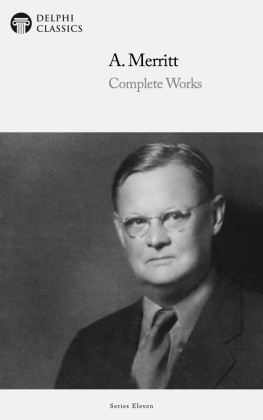A. Merritt [MERRITT - The Moon Pool
Here you can read online A. Merritt [MERRITT - The Moon Pool full text of the book (entire story) in english for free. Download pdf and epub, get meaning, cover and reviews about this ebook. year: 2012, publisher: The Overlook Press, genre: Detective and thriller. Description of the work, (preface) as well as reviews are available. Best literature library LitArk.com created for fans of good reading and offers a wide selection of genres:
Romance novel
Science fiction
Adventure
Detective
Science
History
Home and family
Prose
Art
Politics
Computer
Non-fiction
Religion
Business
Children
Humor
Choose a favorite category and find really read worthwhile books. Enjoy immersion in the world of imagination, feel the emotions of the characters or learn something new for yourself, make an fascinating discovery.

- Book:The Moon Pool
- Author:
- Publisher:The Overlook Press
- Genre:
- Year:2012
- Rating:3 / 5
- Favourites:Add to favourites
- Your mark:
- 60
- 1
- 2
- 3
- 4
- 5
The Moon Pool: summary, description and annotation
We offer to read an annotation, description, summary or preface (depends on what the author of the book "The Moon Pool" wrote himself). If you haven't found the necessary information about the book — write in the comments, we will try to find it.
A. Merritt [MERRITT: author's other books
Who wrote The Moon Pool? Find out the surname, the name of the author of the book and a list of all author's works by series.
The Moon Pool — read online for free the complete book (whole text) full work
Below is the text of the book, divided by pages. System saving the place of the last page read, allows you to conveniently read the book "The Moon Pool" online for free, without having to search again every time where you left off. Put a bookmark, and you can go to the page where you finished reading at any time.
Font size:
Interval:
Bookmark:

This edition published in the United States in 2009 by
The Overlook Press, Peter Mayer Publishers, Inc.
Woodstock & New York
N EW Y ORK:
141 Wooster Street
New York, NY 10012
Introduction copyright 2008 by Lynnette Porter
All Rights Reserved. No part of this publication may be reproduced or transmitted in any form or by any means, electronic or mechanical, including photocopy, recording, or any information storage and retrieval system now known or to be invented without permission in writing from the publisher, except by a reviewer who wishes to quote brief passages in connection with a review written for inclusion in a magazine, newspaper, or broadcast.
ISBN 978-1-46830-445-9

L YNNETTE P ORTER , P H .D.
P ICTURE THESE : A TROPICAL PARADISE WITH A HIDDEN PORTAL TO ANOTHER world. A deadly creature, both beautiful and horrible to behold. Warring peoples, offering friendship or death to those who dare to enter their territory. A complex mythology of these peoples origins and beliefs. A philosophical debate by which visitors to this strange world try to determine whether science or the supernatural offers the likeliest explanation for what they experience. A multinational group, each person sharing insights into his culture. Sound familiar? In 2008, these descriptions might refer to a television popular culture phenomenonLostor perhaps the long-awaited latest installment of the Indiana Jones movies. On the contrary, they describe a science fiction novel that first introduced readers to such intriguing foreign worlds: Abraham Merritts The Moon Pool.
In 1919, The Moon Pool first became a book, uniting the original story (The Moon Pool) and its sequel (The Conquest of the Moon Pool), both previously published in pulp fiction magazines. The Moon Pool was published in June 1918 in All-Story Weekly; the longer follow-up story, published in the same magazine, was doled out to readers over six installments in 1919. Merritts first novel plays upon popular themes introduced in other novels of its time: the discovery of an exotic place, often the result of scientific exploration, and the revelation of a lost race. With what would turn out to be the first world war just ended, readers understood warfare and sacrifice, common literary themes of that time. Merritt elaborated upon these themes within a newer genre of literature: science fiction.
To appreciate The Moon Pool as an ancestor text to so many literary, television, and film science fiction stories, we need to understand its historic significance as literature within its own time and in the pantheon of science fiction classics. We then can see Merritts influence on science fiction in the 20th and 21st centuries and gain a deeper enjoyment of The Moon Pool as historically important escapist entertainment.
Science Fiction at the Turn of the 20th Century
In his masterwork, Understanding Contemporary American Science Fiction: The Formative Period (1926-1970), science fiction scholar Dr. Thomas Clareson emphasized the importance of pulp magazines in the development of the science fiction genre at the turn of the 20th century. Merritt frequently published his stories first in these magazines, which shaped SF during the period of World War I and included both SF and fantasy titles until the 1940s. (the former character brought to life yet again via animation in Disneys 1999 film and subsequent Broadway musical, the latter reported under development for a Pixar film). With The Moon Pool, Merritt introduced readers to a beautiful but frightening world entered through a mysterious door linking an island in the South Pacific to a subterranean land of Muria. There readers meet characters from lost races, including the beautiful but deadly Yolara, a priestess devoted to the Shining One; the Silent Ones; their chosen representative, the lovely Lakla; and the frog-like Akka. Merritts novel offers romance as well as adventure for the men who journey into Muria.
The Moon Pool, however, is more than a superficial lost world or mere romance. Merritt infused mystery and mythology into this romantic adventure. The Shining One (also called the Dweller by visitors) escapes the lower world through a moon pool during a full moon and becomes a compelling as well as repelling force for the humans who look upon it. When the Shining One captures members of scientist/explorer Dr. David Throckmartins party, including his young wife, Throckmartin seeks help in searching for them. Dr. Walter Goodwin agrees to help his colleague, who soon after also is taken by the Shining One. On the way to the island where the Throckmartin party disappeared, Goodwin meets Larry OKeefe, a downed pilot rescued from the sea, and Olaf Huldriksson, a sailor whose wife and daughter also have been carried off to the Shining Ones lair. The trio undertakes a strange journey to Muria as they search for the missing. Along the way they find not only lost races close to civil war but experience love and sacrifice; the emotional components of the story are as compelling as the adventure and truly offer something for everyone.
Although fantasy stories on which characters become lost in another world (e.g., Lewis Carrolls [1865] Alices Adventures in Wonderland, L. Frank Baums [1900] The Wonderful Wizard of Oz and its sequels, C. S. Lewis [1950-1956] Narnia series) long have been popular, Merritt created a distinctly SF style for his adventure in another world in search of a lost race. Responding to continued public interest in science, he added scientific theories to his fiction, which distinguishes The Moon Pool and his other works from fantasy stories using a lost world theme.
By trade a journalist and an editor, Merritt became the assistant editor of The American Weekly, a job he held at the time of The Moon Pools publication; from 1937 until his death six years later, he served as American Weeklys editor. Merritts journalistic background helped him conduct research to add as footnotes or lengthy explanations told through Goodwins dialogue. He often explained, in great detail, the (early 1900s) theories relevant to curious aspects of Muria; he used science to help enrich the story and make such an adventure seem plausible, if not likely, to readers. Instead of following the journalists compact style, which editor Merritt valued on the job, he allowed himself greater creativity in his fiction, where his style became more reminiscent of fantasy writers elaborately descriptive prose. Like other authors of the early 20th century, including such renowned fantasy writers as J. R. R. Tolkien and C. S. Lewis (whose works once again are extremely popular in print and on film), Merritt preferred long sentences and elaborate descriptions to help readers visualize worlds unfamiliar to them.
For his
Merritts Influence on SF Television and Movies
Every SF television series or movie using a portal as a device to span time or space owes the idea to Merritt, whose Moon Pool introduced a disappearing portal between worlds. When Goodwin, Larry, and Olaf walk through a rock wall into Muria, they are just as surprised as their hosts, who demand to know where this hidden door is located; Yolara wants to know how to travel to the above world in order to conquer it. With this one device, SF readers gained a new way to enter strange worlds, whether below earths surface, as in The Moon Pool,
Font size:
Interval:
Bookmark:
Similar books «The Moon Pool»
Look at similar books to The Moon Pool. We have selected literature similar in name and meaning in the hope of providing readers with more options to find new, interesting, not yet read works.
Discussion, reviews of the book The Moon Pool and just readers' own opinions. Leave your comments, write what you think about the work, its meaning or the main characters. Specify what exactly you liked and what you didn't like, and why you think so.








